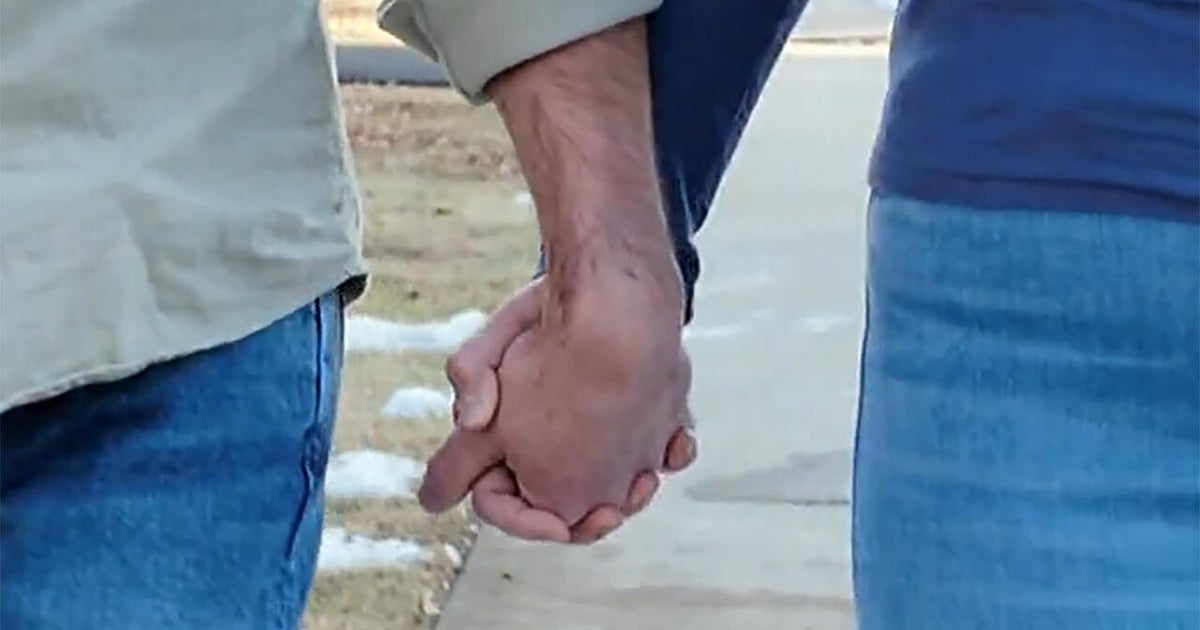Read all about it: The popularity of turning captions on
There are a lot of TVs in the Pennsylvania household of Jason and Marilyn McMunn. "We have about 10," said Jason. And, he says, if a TV is on, the subtitles are on.
They're not unusual. According to a recent CBS News poll, over half of Americans keep subtitles turned on some (21%) or all (34%) of the time, especially younger people.
Technically, the term "subtitles" means translations into your language. But these days, people use subtitles to refer to closed captions, which were invented to help the hard-of-hearing.
But the McMunns' hearing is just fine. They keep subtitles on for all kinds of other reasons. "The parrot will be screaming, the kids will be doing stuff," said Jason. "It's a little bit of a circus."
Marilyn said, "I found that I was missing things. So, with the subtitles, it just made that all a lot easier."
Also, because we're seeing more actors with accents. "I like to watch some of the British mystery things," said Joanne. "And sometimes they're hard to understand."
Another problem: thin TVs have thin speakers, usually firing out the back.
And as a kid at bedtime, Reanna even had a secret reason for turning on subtitles: "I'd turn the sound all the way down, and I would turn on the subtitles. That way I could still watch my little YouTube videos without getting caught!" she laughed.
But according to the experts, the biggest reason for the rise of subtitles? "Dialogue is getting harder to hear," according to Oscar-winner Tom Fleischman, who has mixed the sound for some very famous movies, including "The Silence of the Lambs," "School of Rock," "The Wolf of Wall Street," "The Devil Wears Prada," and "Killers of the Flower Moon." It's his job to balance the levels of various audio tracks -- music, sound effects, and dialogue.
He played a scene from Martin Scorsese's "Goodfellas," which featured dialogue, pop music, and rain sound effects. "Yep, it was a real dance doing this mix," Fleischman said.
But advancing technology has made his job harder. Decades ago, there was one microphone, overhead. "Actors were trained on stage, and they had to let the audience hear them," Fleischman said, "With the advent of lapel mics, acting styles have changed. There's a lot of whispering."
The invention of digital sound recording didn't help, either. "Suddenly we were able to run 200 tracks at once," Fleischman said. "A lot of layering, a lot of sound effects, a lot of music. It makes it harder to get the dialogue to read through it."
Finally, in this era of too much TV, often there's too little time and money. Fleischman said, "You have to cut corners. You just can't spend enough time making sure every syllable is there in a word."
So, has it ever happened that he would send the final mix off, knowing there is some dialogue that no one is going to get? "Oh yeah, yeah. Happens a lot," Fleischman said.
And then, there's the Christopher Nolan problem. The dialogue in the movies he directs is famously unintelligible, whether it's "Oppenheimer," "Dunkirk" or "Tenet." Nolan has said he sometimes likes to use dialogue as a sound effect.
- Christopher Nolan breaks silence on "Interstellar" sound (Hollywood Reporter)
Streaming services like Netflix, Hulu and Amazon Prime began adding captions to all of their shows in the 2010s, under pressure from the National Association of the Deaf. The subtitling profession got a huge boost.
Jeff Tashige, through a subtitling contractor, writes the captions for Netflix shows like "Stranger Things." His exuberant descriptions of sound effects ("Tentacles undulating moistly") have earned a cult following.
- 42 "Stranger Things" closed captions from Season 4, Vol. 2 that will honestly have you squelching wetly (Buzz Feed)
"I like to watch an episode or a movie through at least once," he said. "As the playback is continuing, I'm typing the captions in, I'm typing the subtitles in, I'm adjusting timing."
So now you know why the world's gone subtitle crazy. Because you're in a noisy place. Because you can't understand the actors. Because your speakers are terrible. Because there wasn't time or budget for proper sound mixing. Because the subtitles can add to the storytelling. Because the director was Christopher Nolan.
And, sometimes, because you're hard of hearing.
Asked if he saw a downside to captions, Jason McMunn replied, "Yeah, I just don't like the interference with the picture."
Joanne said, "If the subtitles are on, I find myself reading instead of watching and listening."
But otherwise, for the McMunn family, there's no going back. Asked if they won an audiovisual lottery, with surround sound systems for every TV in the house, and audio quality was no longer an issue, they would still turn the subtitles on. "I don't think I could stop now," Jason laughed.
Story produced by Dustin Stephens. Editors: Libby Fabricatore and Robert Kaplan.







